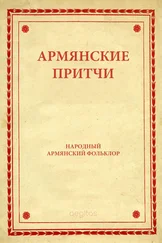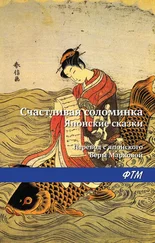Народное творчество (Фольклор) - A plain and literal translation of the Arabian nights entertainments, now entituled The Book of the Thousand Nights and a Night. Volume 7 (of 17)
Здесь есть возможность читать онлайн «Народное творчество (Фольклор) - A plain and literal translation of the Arabian nights entertainments, now entituled The Book of the Thousand Nights and a Night. Volume 7 (of 17)» — ознакомительный отрывок электронной книги совершенно бесплатно, а после прочтения отрывка купить полную версию. В некоторых случаях можно слушать аудио, скачать через торрент в формате fb2 и присутствует краткое содержание. Жанр: Сказка, Старинная литература, foreign_antique, на английском языке. Описание произведения, (предисловие) а так же отзывы посетителей доступны на портале библиотеки ЛибКат.
- Название:A plain and literal translation of the Arabian nights entertainments, now entituled The Book of the Thousand Nights and a Night. Volume 7 (of 17)
- Автор:
- Жанр:
- Год:неизвестен
- ISBN:нет данных
- Рейтинг книги:5 / 5. Голосов: 1
-
Избранное:Добавить в избранное
- Отзывы:
-
Ваша оценка:
- 100
- 1
- 2
- 3
- 4
- 5
A plain and literal translation of the Arabian nights entertainments, now entituled The Book of the Thousand Nights and a Night. Volume 7 (of 17): краткое содержание, описание и аннотация
Предлагаем к чтению аннотацию, описание, краткое содержание или предисловие (зависит от того, что написал сам автор книги «A plain and literal translation of the Arabian nights entertainments, now entituled The Book of the Thousand Nights and a Night. Volume 7 (of 17)»). Если вы не нашли необходимую информацию о книге — напишите в комментариях, мы постараемся отыскать её.
A plain and literal translation of the Arabian nights entertainments, now entituled The Book of the Thousand Nights and a Night. Volume 7 (of 17) — читать онлайн ознакомительный отрывок
Ниже представлен текст книги, разбитый по страницам. Система сохранения места последней прочитанной страницы, позволяет с удобством читать онлайн бесплатно книгу «A plain and literal translation of the Arabian nights entertainments, now entituled The Book of the Thousand Nights and a Night. Volume 7 (of 17)», без необходимости каждый раз заново искать на чём Вы остановились. Поставьте закладку, и сможете в любой момент перейти на страницу, на которой закончили чтение.
Интервал:
Закладка:
She said, It hath reached me, O auspicious King, that after Sahim had aroused Ajib, whom he had made insensible with henbane and had brought to his brother Gharib, the captive opened his eyes and, feeling himself bound and shackled, hung down his head earthwards. Thereupon cried Sahim, “O Accursed, lift thy head!” So he raised his eyes and found himself amongst Arabs and Ajams and saw his brother seated on the throne of his estate and the place of his power, wherefore he was silent and spake not. Then Gharib cried out and said, “Strip me this hound!” So they stripped him and came down upon him with whips, till they weakened his body and subdued his pride, after which Gharib set over him a guard of an hundred knights. And when this fraternal correction had been administered they heard shouts of, “There is no God but the God!” and “God is Most Great!” from the camp of the Kafirs. Now the cause of this was that, ten days after his nephew King Al-Damigh, Gharib’s uncle, had set out from Al-Jazirah, with twenty thousand horse, and on nearing the field of battle, had despatched one of his scouts to get news. The man was absent a whole day, at the end of which time he returned and told Al-Damigh all that had happened to Gharib with his brother. So he waited till the night, when he fell upon the Infidels, crying out, “Allaho Akbar!” and put them to the edge of the biting scymitar. When Gharib heard the Takbir, 8 8 i.e. the slogan-cry of “Allaho Akbar,” which M. C. Barbier de Meynard compares with the Christian “Te Deum.”
he said to Sahim, “Go find out the cause of these shouts and war-cries.” So Sahim repaired to the field of battle and questioned the slaves and camp followers, who told him that King Al-Damigh had come up with twenty thousand men and had fallen upon the idolaters by night, saying, “By the virtue of Abraham the Friend, I will not forsake my brother’s son, but will play a brave man’s part and beat back the host of Miscreants and please the Omnipotent King!” So Sahim returned and told his uncle’s derring-do to Gharib, who cried out to his men, saying. “Don your arms and mount your steeds and let us succour my father’s brother!” So they took horse and fell upon the Infidels and put them to the edge of the sharp sword. By the morning they had killed nigh fifty thousand of the Kafirs and made other thirty thousand prisoners, and the rest of Ajib’s army dispersed over the length and breadth of earth. Then the Moslems returned in victory and triumph, and Gharib rode out to meet his uncle, whom he saluted and thanked for his help. Quoth Al-Damigh, “I wonder if that dog Ajib fell in this day’s affair.” Quoth Gharib, “O uncle, be of good cheer and keep thine eyes cool and clear: know that he is with me in chains.” When Al-Damigh heard this he rejoiced with exceeding joy and the two kings dismounted and entered the pavilion, but found no Ajib there; whereupon Gharib exclaimed, “O glory of Abraham, the Friend (with whom be peace!),” adding, “Alas, what an ill end is this to a glorious day!” and he cried out to the tent-pitchers, saying, “Woe to you! Where is my enemy who oweth me so much?” Quoth they, “When thou mountedst and we went with thee, thou didst not bid us guard him;” and Gharib exclaimed, “There is no Majesty and there is no Might save in Allah, the Glorious, the Great!” But Al-Damigh said to him, “Hasten not nor be concerned, for where can he go, and we in pursuit of him?” Now the manner of Ajib’s escape was in this wise. His page Sayyar had been ambushed in the camp and when he saw Gharib mount and ride forth, leaving none to guard his enemy Ajib, he could hardly credit his eyes. So he waited awhile and presently crept to the tent and taking Ajib, who was senseless for the pain of the bastinado, on his back, made off with him into the open country and fared on at the top of his speed from early night to the next day, till he came to a spring of water, under an apple tree. There he set down Ajib from his back and washed his face, whereupon he opened his eyes and seeing Sayyar, said to him, “O Sayyar, carry me to Cufa that I may recover there and levy horsemen and soldiers wherewith to overthrow my foe: and know, O Sayyar, that I am anhungered.” So Sayyar sprang up and going out to the desert caught an ostrich-poult and brought it to his lord. Then he gathered fuel and deftly using the fire-sticks kindled a fire, by which he roasted the bird which he had hallal’d 9 9 The Anglo-Indian term for the Moslem rite of killing animals for food. (Pilgrimage i. 377.)
and fed Ajib with its flesh and gave him to drink of the water of the spring, till his strength returned to him, after which he went to one of the Badawi tribal encampments, and stealing thence a steed mounted Ajib upon it and journeyed on with him for many days till they drew near the city of Cufa. The Viceroy of the capital came out to meet and salute the King, whom he found weak with the beating his brother had inflicted upon him; and Ajib entered the city and called his physicians. When they answered his summons, he bade them heal him in less than ten days’ time: they said, “We hear and we obey,” and they tended him till he became whole of the sickness that was upon him and of the punishment. Then he commanded his Wazirs to write letters to all his Nabobs and vassals, and he indited one-and-twenty writs and despatched them to the governors, who assembled their troops and set out for Cufa by forced marches.–And Shahrazad perceived the dawn of day and ceased saying her permitted say.
She continued, It hath reached me, O auspicious King, that Ajib sent orders to assemble the troops, who marched forthright to Cufa. Meanwhile, Gharib, being troubled for Ajib’s escape, despatched in quest of him a thousand braves, who dispersed on all sides and sought him a day and a night, but found no trace of him; so they returned and told Gharib, who called for his brother Sahim, but found him not; whereat he was sore concerned, fearing for him from the shifts of Fortune. And lo! Sahim entered and kissed ground before Gharib, who rose, when he saw him, and asked, “Where hast thou been, O Sahim?” He answered, “O King, I have been to Cufa and there I find that the dog Ajib hath made his way to his capital and is healed of his hurts: eke, he hath written letters to his vassals and sent them to his Nabobs who have brought him troops.” When Gharib heard this, he gave the command to march; so they struck tents and fared for Cufa. When they came in sight of the city, they found it compassed about with a host like the surging main, having neither beginning nor end. So Gharib with his troops encamped in face of the Kafirs and set up his standards, and darkness fell down upon the two hosts, whereupon they lighted camp-fires and kept watch till daybreak. Then King Gharib rose and making the Wuzu-ablution, prayed a two-bow prayer according to the rite of our father Abraham the Friend (on whom be the Peace!); after which he commanded the battle-drums to sound the point of war. Accordingly, the kettle-drums beat to combat and the standards fluttered whilst the fighting men armour donned and their horses mounted and themselves displayed and to plain fared. Now the first to open the gate of war was King Al-Damigh, who urged his charger between the two opposing armies and displayed himself and played with the swords and the spears, till both hosts were confounded and at him marvelled, after which he cried out, saying, “Who is for jousting? Let no sluggard come out to me or weakling; for I am Al-Damigh, the King, brother of Kundamir the King.” Then there rushed forth a horseman of the Kafirs, as he were a flame of fire, and drave at Al-Damigh, without word said; but the King received him with a lance-thrust in the breast so dour that the point issued from between his shoulders and Allah hurried his soul to the fire, the abiding-place dire. Then came forth a second he slew, and a third he slew likewise, and they ceased not to come out to him and he to slay them, till he had made an end of six-and-seventy fighting men. Hereupon the Miscreants and men of might hung back and would not encounter him; but Ajib cried out to his men and said, “Fie on you, O folk! if ye all go forth to him, one by one, he will not leave any of you, sitting or standing. Charge on him all at once and cleanse of them our earthly wone and strew their heads for your horses’ hoofs like a plain of stone!” So they waved the awe-striking flag and host was heaped upon host; blood rained in streams upon earth and railed and the Judge of battle ruled, in whose ordinance is no unright. The fearless stood firm on feet in the stead of fight, whilst the faint-heart gave back and took to flight thinking the day would never come to an end nor the curtains of gloom would be drawn by the hand of Night; and they ceased not to battle with swords and to smite till light darkened and murk starkened. Then the kettle-drums of the Infidels beat the retreat, but Gharib, refusing to stay his arms, drave at the Paynimry, and the Believers in Unity, the Moslems, followed him. How many heads and hands they shore, how many necks and sinews they tore, how many knees and spines they mashed and how many grown men and youths they to death bashed! With the first gleam of morning grey the Infidels broke and fled away, in disorder and disarray; and the Moslems followed them till middle-day and took over twenty thousand of them, whom they brought to their tents in bonds to stay. Then Gharib sat down before the gate of Cufa and commanded a herald to proclaim pardon and protection for every wight who should leave the worship to idols dight and profess the unity of His All-might the Creator of mankind and of light and night. So was made proclamation as he bade in the streets of Cufa and all that were therein embraced the True Faith, great and small; then they issued forth in a body and renewed their Islam before King Gharib, who rejoiced in them with exceeding joy and his breast broadened and he threw off all annoy. Presently he enquired of Mardas and his daughter Mahdiyah, and, being told that he had taken up his abode behind the Red Mountain, he called Sahim and said to him, “Find out for me what is become of thy father.” Sahim mounted steed without stay or delay and set his berry-brown spear in rest and fared on in quest till he reached the Red Mountain, where he sought for his father, yet found no trace of him nor of his tribe; however, he saw in their stead an elder of the Arabs, a very old man, broken with excess of years, and asked him of the folk and whither they were gone. Replied he, “O my son, when Mardas heard of Gharib’s descent upon Cufa he feared with great fear and, taking his daughter and his folk, set out with his handmaids and negroes into the wild and wold, and I wot not whither he went.” So Sahim, hearing the Shaykh’s words, returned to Gharib and told him thereof, whereat he was greatly concerned. Then he sat down on his father’s throne and, opening his treasuries, distributed largesse to each and every of his braves. And he took up his abode in Cufa and sent out spies to get news of Ajib. He also summoned the Grandees of the realm, who came and did him homage; as also did the citizens and he bestowed on them sumptuous robes of honour and commended the Ryots to their care.–And Shahrazad perceived the dawn of day and ceased to say her permitted say.
Читать дальшеИнтервал:
Закладка:
Похожие книги на «A plain and literal translation of the Arabian nights entertainments, now entituled The Book of the Thousand Nights and a Night. Volume 7 (of 17)»
Представляем Вашему вниманию похожие книги на «A plain and literal translation of the Arabian nights entertainments, now entituled The Book of the Thousand Nights and a Night. Volume 7 (of 17)» списком для выбора. Мы отобрали схожую по названию и смыслу литературу в надежде предоставить читателям больше вариантов отыскать новые, интересные, ещё непрочитанные произведения.
Обсуждение, отзывы о книге «A plain and literal translation of the Arabian nights entertainments, now entituled The Book of the Thousand Nights and a Night. Volume 7 (of 17)» и просто собственные мнения читателей. Оставьте ваши комментарии, напишите, что Вы думаете о произведении, его смысле или главных героях. Укажите что конкретно понравилось, а что нет, и почему Вы так считаете.












